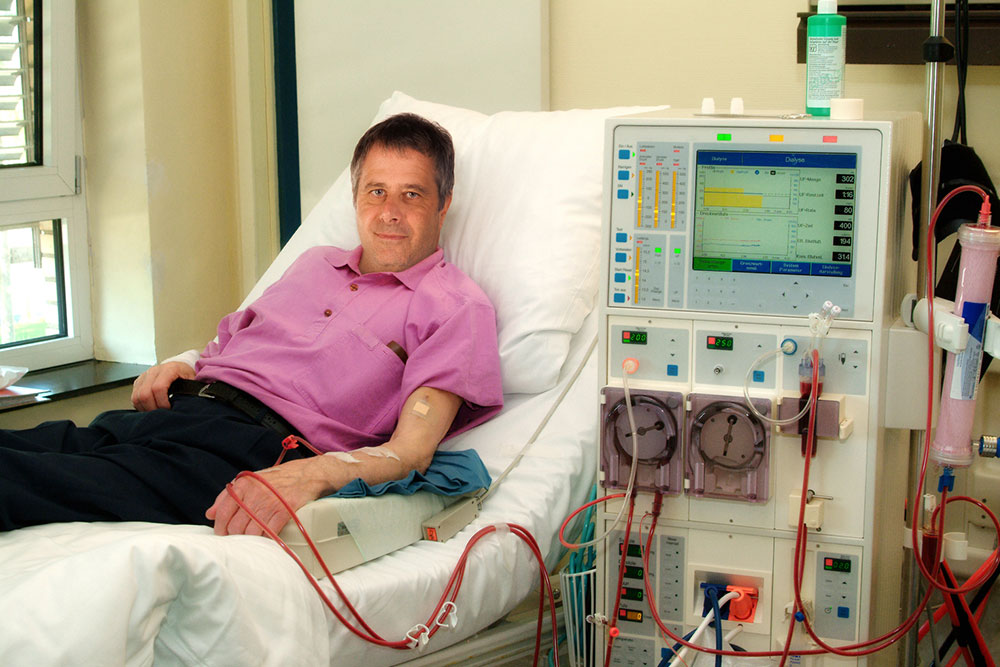Recognizing Early Signs and Symptoms of Kidney Dysfunction to Protect Your Health
This comprehensive article explores the early indicators and symptoms of kidney dysfunction, emphasizing the importance of early detection to prevent severe health complications. It details signs such as fatigue, changes in urination, skin issues, swelling, and more, along with causes and management tips. Recognizing these symptoms early can significantly improve outcomes and maintain kidney health. Regular check-ups and lifestyle adjustments are key components of prevention and effective treatment of chronic kidney disease.

Recognizing Early Signs and Symptoms of Kidney Dysfunction to Protect Your Health
The kidneys are vital organs responsible for filtering waste, excess water, and toxins from our bloodstream. When these organs start to fail or become impaired, it is known as kidney dysfunction or chronic kidney disease (CKD). Detecting the early indicators and symptoms of kidney problems is crucial for prompt medical intervention, which can slow progression and prevent severe health complications. This comprehensive guide explores the key warning signs, their causes, and the essential steps to safeguard renal health.
Understanding Kidney Dysfunction and Its Causes
Kidney dysfunction often develops insidiously, meaning symptoms may not be obvious in the early stages. Common causes include chronic conditions such as hypertension (high blood pressure) and diabetes mellitus, which significantly strain the kidneys over time. Other contributing factors are infections, glomerulonephritis, obstructive uropathy, genetic predispositions, and prolonged use of certain medications like NSAIDs. If left unchecked, progressive damage allows toxins and waste products to accumulate in the blood, leading to serious health issues, including renal failure.
Persistent Fatigue and Weakness
One of the hallmark early signs of kidney dysfunction is persistent fatigue. The primary role of kidneys is to eliminate waste products that, if accumulated, can cause systemic toxicity. When kidney filtering capabilities diminish, toxins build up in the body, leading to feelings of unexplained exhaustion and weakness. Patients often report difficulty concentrating or have trouble performing normal daily activities, even after sufficient rest. This fatigue is often mistaken for general tiredness, but its persistence warrants medical evaluation.
Changes in Urination Patterns
Altered urination habits are classic indicators of renal issues. People experiencing kidney problems may notice an increase in the frequency of urination, especially during nighttime, known as nocturia. They might also encounter painful or difficult urination, or observe that their urine appears foamy, indicating elevated protein levels. Blood in urine, or hematuria, is another warning sign. Since these symptoms can be caused by other conditions, consulting a healthcare professional for proper diagnosis is essential before drawing conclusions.
Sleep Disturbances and Disorders
Research illustrates a strong connection between sleep disorders, such as sleep apnea, and kidney disease. Sleep apnea causes reduced oxygen levels during sleep, which can impair kidney function. Conversely, chronic kidney issues can lead to poor sleep quality due to toxin buildup and discomfort. Patients may experience insomnia, restless sleep, or frequent awakenings. Recognizing and managing sleep disturbances are vital for preserving kidney health and overall well-being.
Persistent Itchy Skin
One less obvious sign of kidney dysfunction is persistent itching and skin irritation. When kidneys fail to effectively filter toxins from the blood, these waste products accumulate, leading to a condition called uremic pruritus. This causes dry, itchy, or inflamed skin, which can become severe if untreated. Skin rashes, increased sensitivity, and rashes may also develop, indicating progressing kidney disease. Addressing this symptom early is important to prevent complications and maintain skin health.
Swelling in Face and Limbs
Fluid retention is a common consequence of decreased kidney function. The impairment impairs normal sodium and water regulation, resulting in swelling or edema, especially in the feet, ankles, legs, face, and around the eyes. Patients may notice that their skin appears puffier or that rings and shoes feel tighter. This swelling develops gradually and can sometimes be mistaken for other conditions. Monitoring for puffy eyes or limb swelling should prompt immediate medical investigation to assess kidney health.
Muscle Cramps and Spasms
Electrolyte imbalances, such as abnormal levels of potassium, calcium, or magnesium caused by impaired kidney function, often lead to muscle cramps, especially in the legs and calves. These cramps can be painful and persistent, serving as a warning sign that kidney function is declining and that electrolyte levels require medical correction.
Nausea, Vomiting, and Loss of Appetite
The buildup of waste products in the bloodstream can irritate the stomach lining, leading to gastrointestinal symptoms like nausea, vomiting, and decreased hunger. If these symptoms persist, they can result in nutritional deficiencies and weight loss, further weakening health. Recognizing early gastrointestinal symptoms associated with kidney dysfunction can prevent progression to severe malnutrition.
Shortness of Breath
Reduced production of erythropoietin by damaged kidneys causes anemia, which decreases oxygen-carrying red blood cells and can cause breathlessness. Additionally, fluid overload can accumulate in the lungs, leading to pulmonary edema, which causes difficulty breathing. Shortness of breath, especially on exertion, should prompt evaluation for kidney-related anemia or fluid retention.
Brain Fog, Confusion, and Dizziness
The accumulation of toxins in the body can affect brain function, resulting in cognitive disturbances such as brain fog, confusion, dizziness, or difficulty concentrating. These neurological symptoms are often overlooked but can indicate advancing kidney dysfunction. Early recognition and management are key to preventing neurological deterioration.
Importance of Early Medical Consultation
If you experience any of these symptoms persistently, seeking prompt medical advice is crucial. Early diagnosis through blood tests, urine analysis, and renal imaging can identify kidney issues before they progress to advanced stages requiring dialysis or transplantation. Preventive measures involve maintaining a balanced diet, staying well-hydrated, managing blood pressure and blood sugar levels, and avoiding nephrotoxic medications. Regular health check-ups are vital for early detection and effective management of kidney health.





